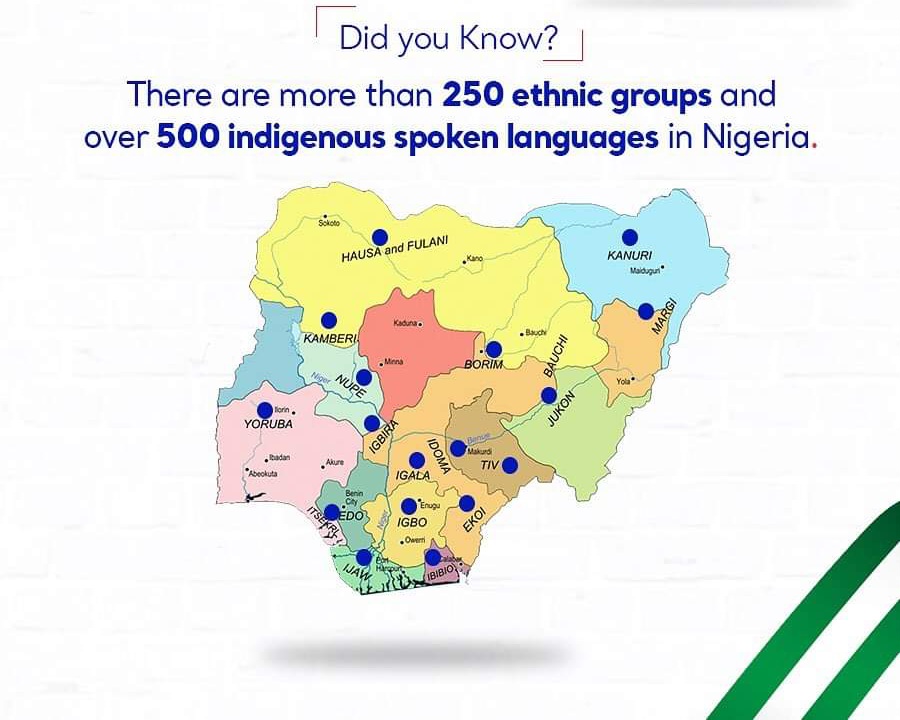By Theresa Moses

Growing up in the Coal City of Jos, the Plateau State capital, North-Central Nigeria, my mother told me that during the Nigerian Civil War, the pronunciation of Tọ́rọ́ coin made a difference between life and death. Tọ́rọ́ was a unit of Nigeria’s currency before the introduction of Naira and Kobo in 1973. According to her, if language was the difference between life and death, Tọ́rọ́ became a matter of life and death. As a teenager, she recounted how soldiers would ask civilians to pronounce Tọ́rọ́ using it as a test to identify “enemies.” The way one pronounced this word revealed whether they were Igbo or not, and many lost their lives simply because of their accent. The Yoruba pronunciation is Tọ́rọ́, but Igbo pronounce it Tolo. The horror of those moments stuck with her.
Obviously, this opened my eyes to reasons why my father insisted his children must learn to speak our native Urhobo language. To me, this became an inspiration. Despite growing up far from our ancestral homeland, Okpe, his determination helped us fluently speak and understand the language. Those moments, immersed in our mother tongue, connected us deeply to our heritage and cultural identity. Whenever we spoke to him or requested something, he insisted we use Urhobo. This practice wasn’t just about communication; it was about preserving our heritage and ensuring we remained connected to our roots. It wasn’t an easy task, but today, I’m glad my father played a crucial role in nurturing the connection.
As a member of the Generation Y (Millennial) cohort, I witnessed a disturbing trend—a decline in the ability of Generation Z (Gen Z) to speak their respective dialects. The big question is: what will be the fate of Generation Alpha or Generation Beta (2025–2039)? My concern is with the African continent, and Nigeria in particular. The erosion of linguistic heritage threatens to sever the ties that bind us to our ancestors and our cultural heritage. In a world where globalisation and technology reign supreme, our unique voices are fading away, lost in the noise of integration. But I refuse to let the stories of my childhood become mere memories. I choose to revive the legacy of my parents and ancestors by speaking, teaching, and promoting our local dialects.

Now, the big question is: who will join me in this quest?
The preference for English and other global languages as a result of modernization, can be attributed to the decline in the use of local dialects among Gen Z. In schools, from daycare to kindergarten through primary, secondary, tertiary, and professional settings, English is often seen as the language of progress and opportunity. Despite the introduction of languages (Hausa, Yoruba, and Igbo) to the curriculum, French is still a leading language after English. Consequently, our local languages are increasingly marginalised, spoken less frequently in everyday interactions, and sometimes viewed as less valuable. Coincidentally, with the rise of digitalisation, communication platforms, predominantly in English, have successfully diminished the use of indigenous languages. Social media, instant messaging, and other online platforms where Gen Z spend much of their time mainly operate in English. This shift not only affects daily communication but also impacts the conveyance of cultural narratives and traditional knowledge, which are often rooted in local languages.
Moving on, it is important to create an environment where local dialects are valued, cherished, and actively used to help revive our linguistic heritage in Nigeria and across the globe. There are better ways than not just integrating local languages into the school curriculum from an early age, but using speaking as a means to pass it during exams and also including it among the compulsory five subjects to pass in the West African Senior School Certificate Examination (WASSCE). By teaching children in both English and their native dialects, we can ensure they grow up bilingual, appreciating, and proficient in their mother tongue. The curriculum should make language classes include storytelling, songs, and cultural history to make learning fun, engaging, and relevant, not limited to just a cultural day in school to eat one’s native food and dress in one’s native attire.
Most importantly, in language preservation, families have a key role to play. Parents, guardians, grandparents, and elders must make a collaborative effort to speak local dialects at home. This practice will naturally create an environment for children to learn and use their native languages effortlessly.
No doubt, technology has contributed to the decline of local dialects, but it can also be a powerful tool for their revival. The development of language learning apps, online courses, and digital content in indigenous languages can make learning accessible and attractive to Gen Z. Corporate organisations, through corporate social responsibility commitments, can promote the use of local dialects and celebrate linguistic diversity via social media campaigns to raise awareness and encourage practice.

The National Orientation Agency (NOA) needs to wake up. The Broadcast Organisation of Nigeria (BON) needs to step up their game. Broadcasting in local languages through television, radio, and online media could have a significant impact. The indigenous movie producers are trying, but they need to up their game with creative narratives. Live shows and music in indigenous languages can make them appealing to younger audiences. Highlighting the cultural richness and uniqueness of these languages through the media can instill a sense of pride and interest in learning them.
Reflecting on my own experience, I am reminded of the importance of deliberate efforts to preserve the Urhobo language. My father’s insistence on communicatng in Urhobo at home had a profound impact on my linguistic abilities and cultural identity. Despite living in a predominantly Hausa-speaking region, we maintained our linguistic heritage through daily practice and reinforcement. My personal journey shows that the revival of local dialects is not just about preserving words and grammar; it is about maintaining a connection to our history, our stories, and our identity. The only vessel for our collective memory and a bridge between generations is language. By speaking our native dialects, we honour our ancestors and ensure that their wisdom and traditions are passed down to future generations.
Looking forward, the task of reviving and preserving local dialects from going extinct requires a collective effort. Governments, educational institutions, communities, families, and individuals must work hand-in-glove to create an environment where indigenous languages thrive. Policies that support bilingual education, funding for cultural programmes, and incentives for media production in local dialects can provide the necessary support for these initiatives.

From the Lost Generation (1883–1900) to the Greatest Generation (1901–1927) to the Silent Generation (1928–1945), the Baby Boomers (1946–1964), and Generation X (1965–1980), our cultural heritage and language were passed down to Generation Y (Millennial) (1981–1996). However, Generation Z (Gen Z) (1997–2012), Generation Alpha (2013–2024), and Generation Beta (2025–2039) themselves need to recognise the value of their linguistic heritage. By embracing their native languages, they can play a crucial role in their preservation.
In conclusion, the decline in the ability of Gen Z to speak their local dialects is a challenge that can be addressed through deliberate and coordinated efforts. By integrating local languages into education, engaging families and communities, leveraging technology, and promoting media in indigenous languages, we can create a vibrant linguistic landscape where our cultural heritage is preserved and celebrated.
My own experience of maintaining fluency in Urhobo despite growing up in Jos is a testament to the power of intentional language preservation. It is a reminder that, with the right support and commitment, we can ensure that future generations remain connected to their roots and proud of their linguistic and cultural heritage.
Together, let us celebrate our diversity and preserve the languages that make us who we are – unique. Let us honour our roots and keep our cultural heritage alive, one conversation at a time, for the sake of our history, our identity, and our future.
Gatmash Media, your trusted source for unbiased news and in-depth analysis, needs your urgent support. Rising operational costs and declining advertising revenue threaten our existence.
Your Support Matters, Every Contribution Counts
1. Donate to:
– Account Name: GATMASH MEDIA
– Account Number: 2038181636
– FIRSTBANK
2. Become a monthly patron.
3. Advertise: [email protected]
4. Share our content.
Help Gatmash Media stay in business and keep independent journalism thriving.
Contact:
[email protected]
Phone/WhatsApp: +234(0)8072022024
https://gatmash.com





